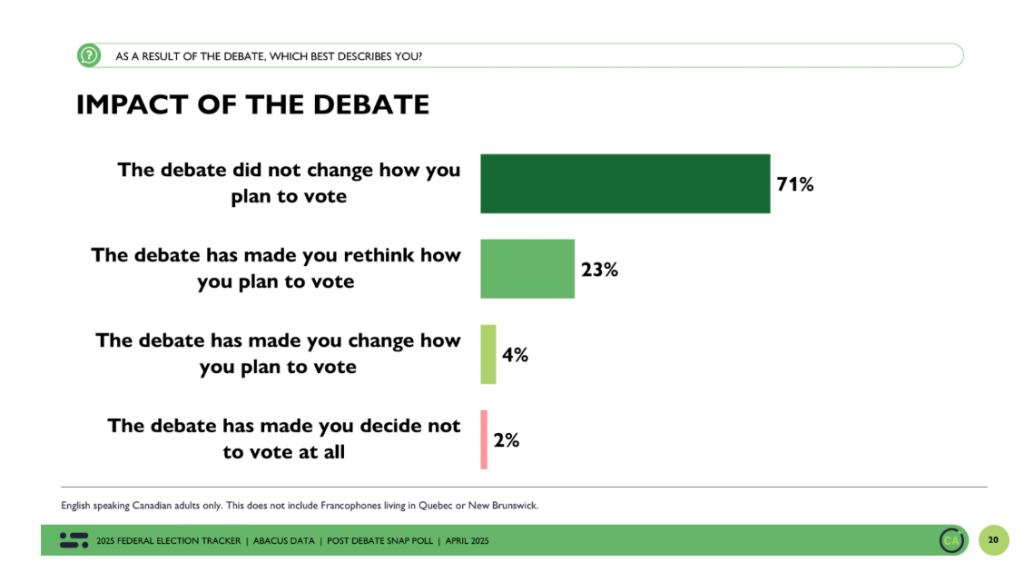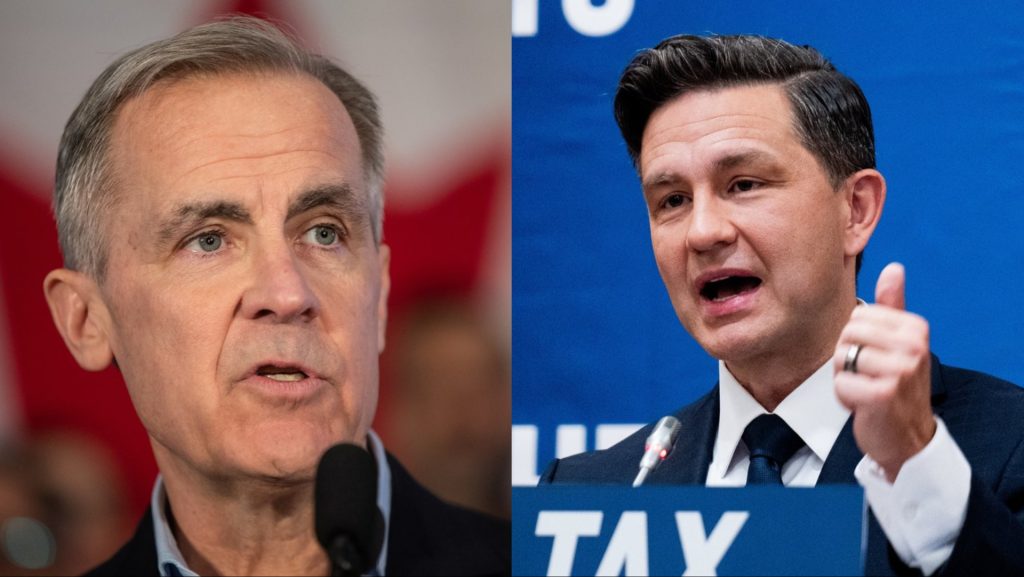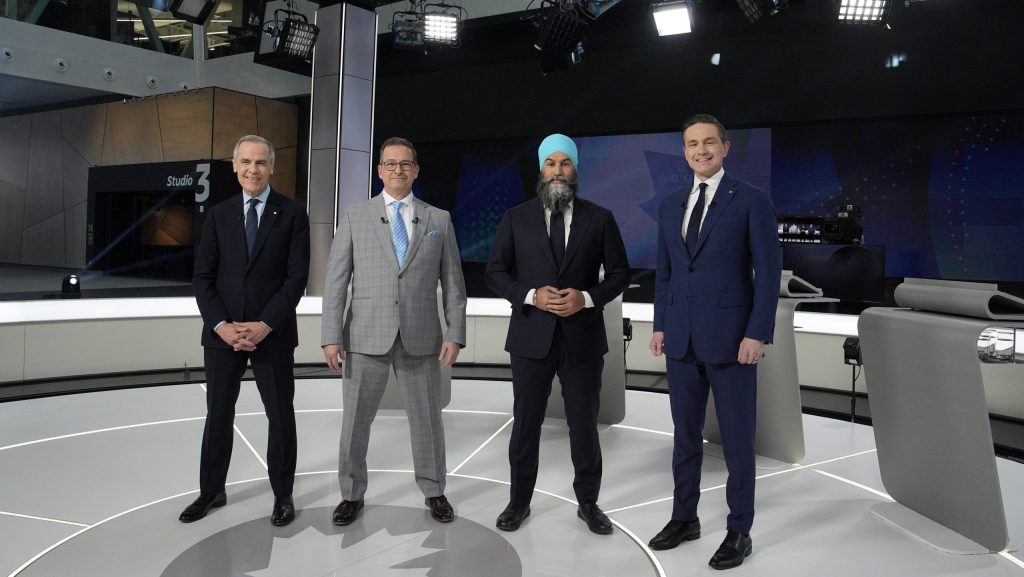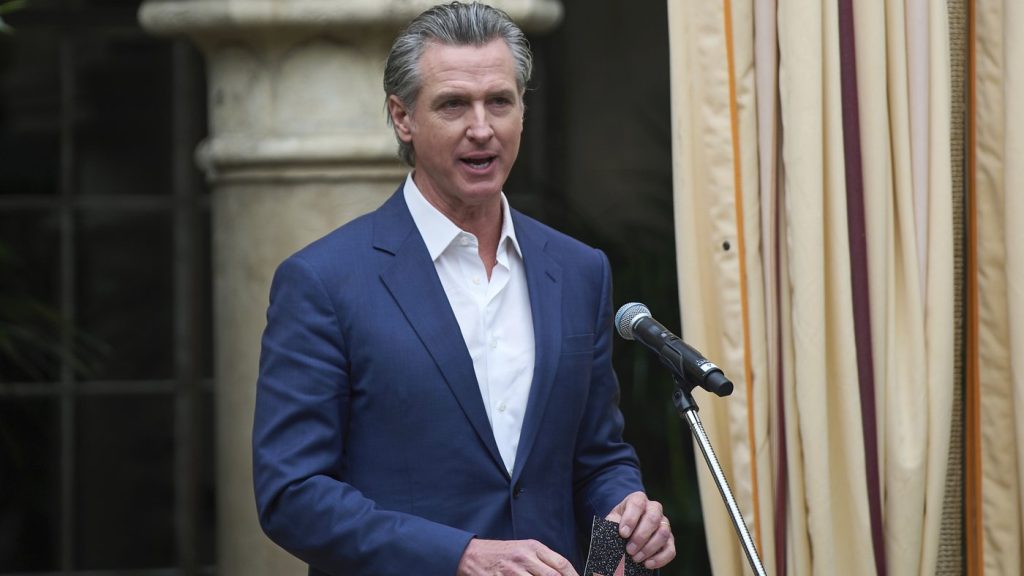During the first and last English-language debate held on Thursday, tensions were high, particularly with verbal attacks directed at Liberal Leader Mark Carney. However, a post-debate poll conducted by Abacus Data indicates that neither the Liberal Party nor the Conservative Party gained significant momentum from the debate.
The report from Abacus Data stated, "If campaigns are marathons punctuated by sprints, tonight’s English-language debate looks like a brisk jog that left the two frontrunners exactly where they started." Within 90 minutes following the debate, Abacus Data gathered responses from 1,200 Canadians, revealing that slightly more than half of the respondents had viewed at least part of the debate.
Among those who watched, 59% rated Carney's performance positively, while 53% expressed similar sentiments towards Conservative Leader Pierre Poilievre. When respondents were asked who did the most to win their vote during the debate, 43% selected Poilievre, while 40% chose Carney. Interestingly, 29% of respondents also indicated that Poilievre did the most to lose their vote.
The data further highlighted that the upcoming April 28 election is a contest primarily between two parties, as NDP Leader Jagmeet Singh and Bloc Québécois Leader Yves-Francois Blanchet lag behind in all measured aspects. This dynamic emphasizes the significance of the race between the Liberals and Conservatives.

The question of who will ultimately win the election and assume the position of Prime Minister of Canada remains uncertain. According to the report, Carney's net impression stands at +37, while Poilievre's is at +23. Although this difference is significant in terms of public perception, it has not yet translated into concrete support at the ballot box.
Out of those who watched the debate, only 4% reported having changed their mind about their voting intentions. Additionally, 23% mentioned they are considering altering their choices, but current preferences closely reflect the broader national trends. The report concluded that the debate sparked reflection among viewers rather than a fundamental realignment of political loyalties.












